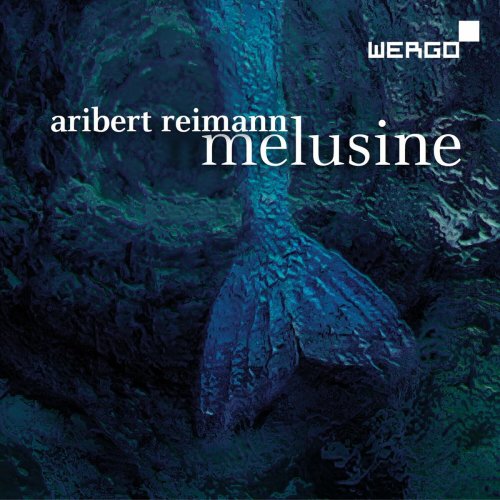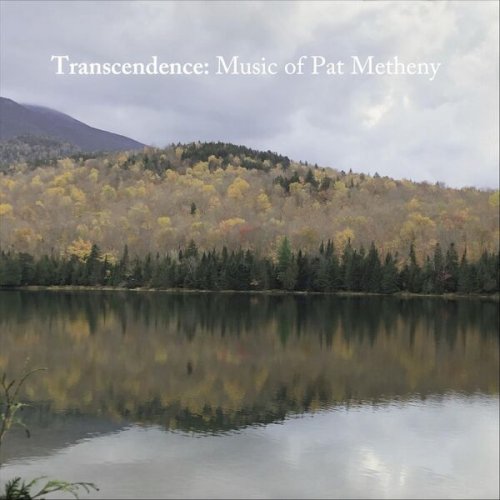Nürnberger Philharmoniker - Reimann: Melusine (2023)

Artist: Nürnberger Philharmoniker
Title: Reimann: Melusine
Year Of Release: 2010/2023
Label: Wergo
Genre: Classical
Quality: FLAC (tracks)
Total Time: 86:47 min
Total Size: 455 MB
WebSite: Album Preview
Tracklist:Title: Reimann: Melusine
Year Of Release: 2010/2023
Label: Wergo
Genre: Classical
Quality: FLAC (tracks)
Total Time: 86:47 min
Total Size: 455 MB
WebSite: Album Preview
CD1:
01. Melusine, Act I Scene 1
02. Melusine, Act I Scene 2
03. Melusine, Act I Scene 3
04. Melusine, Act I Scene 4
05. Melusine, Interlude 1
06. Melusine, Act II Scene 1
07. Melusine, Act II Scene 2
08. Melusine, Act II Scene 3
CD2:
01. Melusine, Act III Beginning
02. Melusine, Act III Scene Pythia-Oger
03. Melusine, Act III Scene by the count
04. Melusine, Interlude 2
05. Melusine, Act IV Scene 1
06. Melusine, Act IV Scene Melusine-Count
07. Melusine, Act IV Interlude 3
08. Melusine, Act IV Scene 2
09. Melusine, Act IV Scene 3
German composer Aribert Reimann (born in 1936) came to international attention with his 1978 opera Lear, which was written for Fischer-Dieskau and has had a variety of international productions and multiple recordings. It's a viscerally brutal score with the power to convey the monumentality of Shakespeare's tragedy, and it's a landmark of late 20th century German opera. Reimann has gone on to be recognized as one of Germany most respected opera composers, winning Opernwelt's award for best operatic premiere of the year in 2001 and 2010. Melusine, written in 1971, uses a musical language similar to that of Lear -- largely serial, with jarring dissonances and fragmented gestures, and extensive Sprechstimme -- but with considerably more delicacy and transparency, as is appropriate for the story of an ethereal water nymph. The libretto, by Claus Henneburg, is based on a 1922 play by French writer Yvan Goll, and is only tangentially related to the medieval legend of Melusine. In the first two acts, the relentless jaggedness of the music does little to delineate the emotions of the drama, although Reimann's extravagantly florid, lyrical coloratura writing for the heroine is highly effective. He seems to have found more secure footing by the third and fourth acts, which are more musically differentiated and dramatically coherent than the first two. The first scene of the last act, while hardly romantically effusive, is recognizably a love scene, tender and understated, an oasis of serenity in an otherwise frenzied score. The overall impact of the opera is muted by Reimann's avoidance of effectively large, dramatic gestures, and the ending, which should be overwhelming, just sputters out. The recording was made at a live 2007 production by Nürnberger Philharmoniker, led by Peter Hirsch. It's an assured and committed performance; the soloists are impressive in their ability to bring feeling to the angular lines, and soprano Marlene Mild in the title role, mezzo-soprano Teresa Erbe, baritone Song-Hu Liu, and bass Thomas Fleischmann are standouts. Wergo's sound is clean and spacious. The music's uncompromising spikiness may not appeal to everyone, but Melusine should be of interest to fans of modernist opera in the lineage of Berg and Zimmermann.



![Nat King Cole - Ramblin' Rose [Bonus Tracks] (2017) Nat King Cole - Ramblin' Rose [Bonus Tracks] (2017)](https://img.israbox.com/img/2025-11/02/h3y4f015x6zoes6wyl39dw23h.jpg)

![Makaya McCraven - Hidden Out! (2025) [Hi-Res] Makaya McCraven - Hidden Out! (2025) [Hi-Res]](https://www.dibpic.com/uploads/posts/2025-10/1761831926_a3455396221_10.jpg)
![Makaya McCraven - The People's Mixtape (2025) [Hi-Res] Makaya McCraven - The People's Mixtape (2025) [Hi-Res]](https://img.israbox.com/img/2025-10/30/ebgyamtsziawdg7xm3rw7grt4.jpg)
![Daniel Santiago - Love in the Modern World (2025) [Hi-Res] Daniel Santiago - Love in the Modern World (2025) [Hi-Res]](https://www.dibpic.com/uploads/posts/2025-10/1761825151_gcsw0cdlg5j4a_600.jpg)
